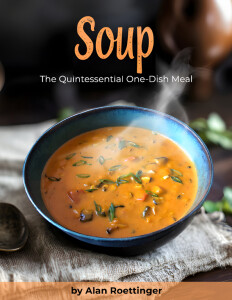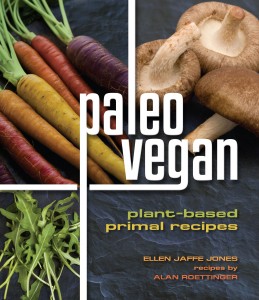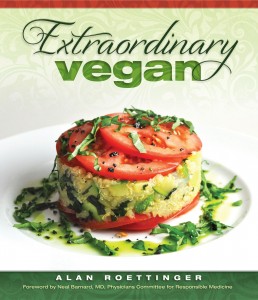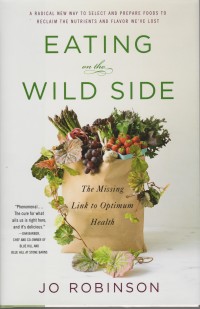Speaking as a man who has at various times owned dogs, cats, a falcon, a pig and a horse–and had affection for all of them–on the one hand, and who has also hunted ducks, killed untold numbers of crustaceans and mollusks, cooked and eaten many species of (formerly) sentient creatures on the other, I must admit that I have no definitive policy to offer. I’m still sorting it out.
I know that hard core vegans would disapprove of this girl’s exploitation of the cow for her own enjoyment, but I have to say that compared to being serially artificially inseminated and auto-milked, and then butchered for meat, playing surrogate horse isn’t a bad option for a cow. They do seem to have bonded. And who knows? Maybe this cow will escape the normal fate of her kind, by virtue of the girl’s love. The prospect of being ridden by a cute girl is not an unpleasant one, if you ask me.
I’ve heard that farmers don’t like to give pet names to the animals they intend to slaughter. The reason seems quite obvious: you don’t kill and eat your pets–that would be beastly. So getting back to “Luna,” the cow-turned-horse, she now has a double cultural barrier between her and the butcher (we don’t kill and eat horses either). Ah, but some of us do. In fact some of us kill and eat just about every edible creature there is.
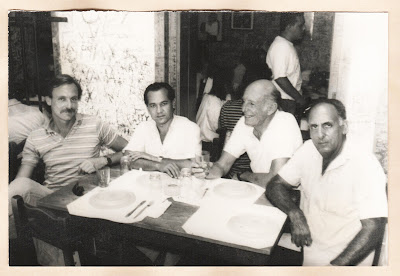 |
| At “La Bodeguita Del Medio.” (That’s me on the left.) |
Back in the summer of 1989, I was at a restaurant/bar in Cuba called “La Bodeguita Del Medio,” made famous by being a favorite hangout of one hard-drinking Ernest Hemmingway (he wrote something on the wall about his love for their mojitos that remains to this day). I was there with my father, who was a guest of the Cuban government, our driver, and what I guess was our handler. Our Cuban hosts were recommending various local specialties for us to try, and most of it was quite good (in spite of the desperate economic situation at that time, which was causing widespread shortages).
Then a dish arrived, and a small serving of it was placed in front of me that looked like some sort of shredded meat in a thick sauce. As I was placing a forkful into my mouth, I asked, “What is this?” A rank, salty taste oiled its way onto my taste buds just as the answer came: “Caballo” (horse!). I’ll never forget that moment; I could not have been more repulsed if they had said it was human flesh. It took all the discipline I could muster to wait for their heads to turn, so I could spit the entire disgusting unformed bolus into my napkin. I ate nothing after that. It took at least three, maybe four mojitos to rinse the lingering taste from my palate.
I’ve told this story to a number of people, all of whom had, vicariously, the same reaction as I did. Why? It’s entirely cultural. In China, people eat dozens, maybe even hundreds of creatures we would not even consider, from live insects and larvae to reptiles and puppy dogs. Eating, we understand, is a function of being alive; what we eat is a matter of culture. Some children have a hard time eating animals at first. My wife was one–she was forced to eat meat until she got used to it, and now it remains part of her cultural set of acceptable norms. I honestly don’t recall whether I went through a period of adjustment to the reality that I was eating real animals or not.
A primary feature of being human is the awareness of our actions, their implications and consequences–and the need to feel okay with what we do (and eat). Right now, I’m on a new culinary track, which includes no animal products, because it works for me–both healthwise and consciencewise. I’m glad to say that my culture is changing around me, so that what I eat is not an entirely foreign concept to other people. I do notice that when they find out I’m not eating animals, they immediately begin to explain why they do eat animals–in a way that I sense is an attempt to deflect blame. From my side, I make a conscious effort to refrain from judging people for being the way they are and doing what they do; I feel very clean and free that way. There is the most profound wisdom in that ole Golden Rule.
.



